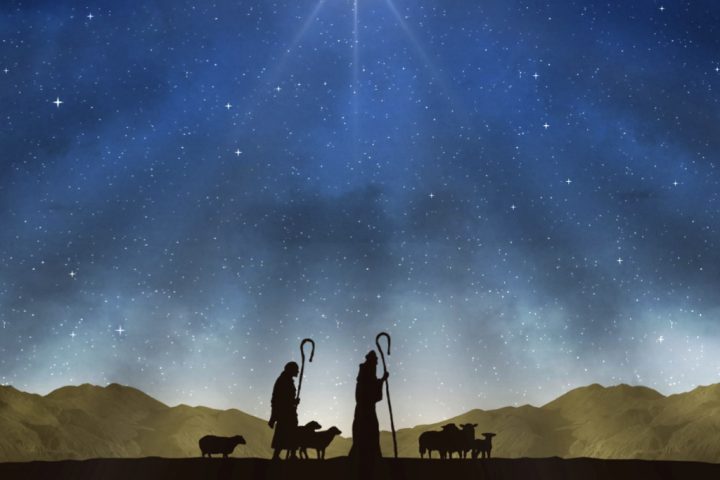Sermons from December 2016
And Heaven and Nature Sing
Luke 2:1-20 On this fourth Sunday of Advent, Christmas Day, we hear the voice of the angel announcing to the shepherds, “Do not be afraid. I bring you good news that will cause great joy for all the people” (Luke 2:10-11). At critical times in Israel’s history when their world grew oppressive and morally dark, God intervened to subvert the existing order announcing “good news” of a new beginning, a fresh start, often through a deliverer who would be born to a barren woman. Yet, despite God’s faithfulness, giving Israel a fresh start again and again, it never lasted. There was always an ominous crack in the foundation of the new order, a fatal character flaw in the human instruments. Why should we expect this “good news” to be any different? How can we be sure it will last? What clues does Luke give us that this will be history’s last new beginning upon which everything else will be built, a beginning that evokes everlasting praise from every creature and all of creation? Join us Christmas Day to receive God’s gift and when you open it, “heaven and nature sing!”
What Are You Waiting For?
Luke 2:25-35 “Sovereign Lord, as you have promised, you may now dismiss your servant in peace.” These are the words spoken by Simeon upon holding a 40-day old baby Jesus. He didn’t know how the Lord would bring an end to the waiting, but as soon as he beheld the Baby, he knew his waiting was over! We have become accustomed to waiting as well. We wait for many things. We wait for Christmas morning and the giving and receiving of gifts. We wait for a spouse. We wait for a house. We wait for promotions or new job opportunities. But do we wait for the Messiah like Simeon? We are reminded in this season that the greatest gift ever given came on a Christmas over 2000 years ago. He came then. He will come again! Most of the gifts we give and receive this Christmas will be out of our lives within 5 years… or even 1 year. But the gift of Grace that came in the Baby, that gift will never be rendered obsolete! What are you waiting for this Christmas? Join us this Sunday as we will all gather together as His family (from kindergartners on up) and continue to prepare for the coming of the King!
The Benedictus: Advent Blessings
Luke 1:57-79 “Blessed be the Lord, the God of Israel.” When John is born and Zechariah suddenly regains his speech, these are the first words out of his mouth. Why does Zechariah bless God? Why should we bless God? Advent is a “speed bump” during the year that allows us the opportunity to remember the blessing of the incarnation and to bless and praise God in return. During these weeks of Advent, we are focusing on the songs of Mary, Zechariah, Simeon, and the angels which we find in the opening chapters of Luke’s gospel. This week we turn to the Benedictus, named for the first word of the song in Latin, “blessed.” Many people do not feel blessed during the Christmas holidays, but Luke’s gospel comes to the rescue. As we gather this Sunday we will look to Zechariah’s song to set our hearts on God and remember the blessings of the Christmas season.
The Magnificat: He has remembered his love!
Luke 1:48-55 While the world rushes from Black Friday and Cyber Monday into the hectic frenzy of Christmas, with its seasonal liturgy of music and art, much of the church observes Advent, when we remember God’s promises to come to his people, and anticipate the second advent of our Lord Jesus Christ. How would you have responded had you been there when God fulfilled those promises through the birth of Jesus? According to Luke’s account, those who were there responded in song. Rather, they responded in psalm-like poetry, which the church quickly set to music and has sung ever since, often every day. We know these Lukan canticles (songs) by their opening words in Latin: the Magnificat of Mary, the Benedictus of Zechariah, and the Nunc Dimittis of Simeon. In the three remaining Sundays of Advent we will look at these three songs in turn. On Christmas Day itself we’ll consider the Gloria, sung by the angels announcing to the shepherds the birth of Jesus.
